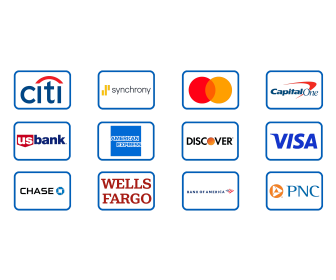Is It Better to Pay Off a Credit Card Early or Keep a Low Balance?
If you’re serious about improving your credit score, you’ve probably heard two pieces of conflicting advice: “Pay off your credit card in full every month” and “Keep a small balance to show activity.” So which one actually helps your credit? The truth is, carrying a balance doesn’t help your score — it just costs you interest. Paying strategically, however, can give your score a small boost. Here’s what you need to know.
How Credit Utilization Works
Your credit utilization ratio — the amount of credit you’re using compared to your limit — makes up about 30% of your FICO® Score. According to Experian, keeping your utilization below 30% is good, below 10% is ideal, and under 1% is considered perfect by many experts.
Example: If your credit limit is $5,000 and you owe $500 when the statement closes, your utilization is 10%. Even if you pay the full $500 before the due date, your statement balance still gets reported — that’s what the credit bureaus see.
What Happens When You Pay Off Early
Paying off your card before the statement closing date means your reported balance will be $0 — effectively a 0% utilization. This can temporarily lower your score by a few points, because scoring models like to see *some* activity. But it’s still financially smarter, since you avoid interest completely and stay in full control.
If you’re applying for a mortgage or major loan soon, paying down cards before the statement date can give your score a short-term lift by reducing reported balances.
Why Carrying a Balance Doesn’t Help
Many people think leaving $20 or $50 unpaid each month “shows the bank they make money from you.” That’s a myth. Credit bureaus don’t reward you for paying interest — they reward you for managing credit responsibly. Carrying a balance only costs you money and increases your risk of missed payments or compounding interest.
How to Time Payments for Maximum Impact
- Check your statement closing date: This is when your balance is reported to the bureaus — not your due date.
- Make an early payment: Pay most (or all) of your balance a few days before the closing date.
- Leave a tiny amount (1–5% utilization): If you want to show activity, let a small charge post, then pay it off after the statement closes.
- Always pay in full by the due date: This avoids all interest and maintains your perfect payment history.
Expert tip: You can automate this process by scheduling two payments each cycle — one mid-month to keep utilization low and one before the due date to clear any remaining balance.
So What’s the Best Strategy?
The ideal approach combines financial discipline and score awareness: let a small balance (1–5%) report, then pay it off completely before the due date. This shows consistent use without costing you interest. It’s the method used by credit pros who maintain 800+ scores.
Final Thoughts
Paying off your credit card early is never a bad move — but if you’re optimizing for your score, understanding timing matters. Whether you carry $0 or $50, what counts most is consistency, on-time payments, and low utilization. Pay early, pay smart, and let your credit profile work for you — not the other way around.
Not financial advice. Credit score models differ by bureau. Always verify your own report at annualcreditreport.com before making major financial decisions.
Continue reading: What Happens to Your Credit Score When You Open a New Card? · Why Your Credit Score Still Sucks — And How to Fix It Fast



